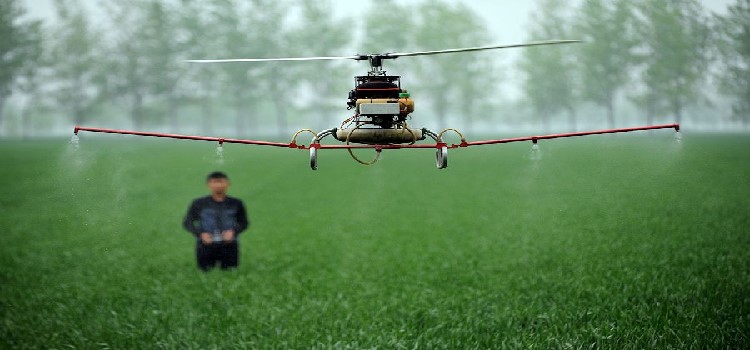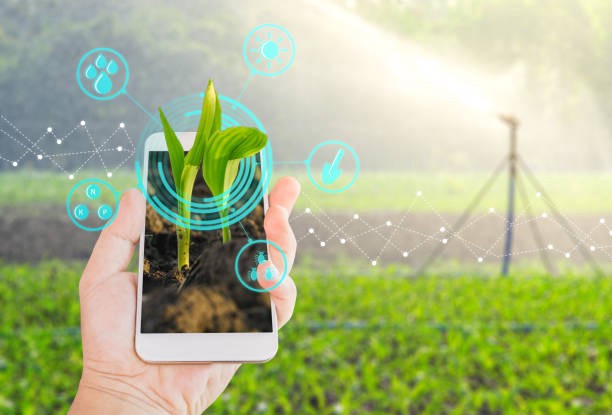
Indonesia Agriculture Robots Market by Type (Driverless Tractors, Unmanned Aerial Vehicles (UAVs), Milking Robots, Automated Harvest Robots, and Others), Offering (Hardware, Software, and Services), Farming Type (Indoor Farming and Outdoor Farming), Application (Dairy Management, Irrigation Management, Harvest Management, Soil Management, Inventory Management, and Others), and End User (Field Crops, Fruits & Vegetables, Livestock, and Others) – Opportunity Analysis and Industry Forecast 2023–2030
Industry: Agriculture | Publish Date: 22-Jul-2023 | No of Pages: 88 | No. of Tables: 73 | No. of Figures: 31 | Format: PDF | Report Code : N/A
Market Overview
Indonesia Agriculture Robots Market was valued at USD 28.21 million in 2022, and is predicted to reach USD 133.06 million by 2030, with a CAGR of 20.2% from 2023 to 2030. Agricultural robots are automated machines that use sensors, software, and actuators to perform tasks in farming. They can plant, harvest, monitor, and spray crops with precision and efficiency, reducing the need for manual labor and improving the working conditions of farmers.
Agribots are advanced robots equipped with sensors, actuators, and algorithms that enable them to perceive their environment, make intelligent decisions, and execute tasks. These robots utilize GPS or mapping technology to navigate fields and carry out a range of agricultural activities, including seed planting, crop harvesting, pesticide or fertilizer application, and crop health monitoring. Leveraging computer vision technology, agribots can identify crops and weeds, detect pests and diseases, and take precise actions based on the data they collect.
Enhancing Labor Efficiency and Productivity in Indonesia's Agriculture Sector through Agriculture Robots
The growth of agriculture robots in Indonesia is driven by the need to address labor shortages and improve productivity in the agriculture sector. These robots provide a solution by automating labor-intensive tasks, reducing reliance on manual labor, and enhancing overall efficiency. With the ability to perform activities such as planting, harvesting, weeding, and crop monitoring with precision and consistency, agriculture robots contribute to increased productivity and higher crop yields. Thus, creating significant growth of the agriculture robots market within the country.
Driving Cost Savings and Financial Returns through Agriculture Robots in Indonesia
The adoption of agriculture robots in Indonesia presents long-term cost savings among farmers. By reducing labor costs, optimizing resource utilization, and minimizing waste, these robots offer significant financial advantages. With their tireless and efficient performance, agriculture robots contribute to higher crop yields and ultimately enhance overall financial returns for farmers. Thus, investing in agriculture robots proves to be a valuable long-term investment for farmers in Indonesia, which is expected to boost the growth of the market within the country.
Financial Barriers to Widespread Adoption of Agricultural Robots in Indonesia
The expensive cost of acquiring, integrating, and maintaining these advanced agricultural robotic systems is a significant impediment, particularly for small-scale farmers and those with limited financial means. For many farmers, the initial expenditures of procuring the requisite technology and equipment, as well as training employees to operate and maintain robots, are too expensive. As a result, it is expected to restrain the country's market growth.
Technological Advancements in Agricultural Sector
Artificial intelligence (AI), machine learning, and robotics are helping Indonesia's agriculture business. These advancements in technology have enabled agricultural robots to become more complex, intelligent, and capable of performing a broad range of duties, including planting cover crops, maintaining varied cropping systems, and delivering real-time data on soil health indicators. These advances are projected to provide several chances for the Indonesian agricultural robotics industry, which is expected to create ample opportunity for the market in the future.
Competitive Landscape
The Agriculture Robots industry includes several market players such as PT Robotika Indonesia, Innofarm, PT Tanindo Jaya Abadi, Titian Agro Tech, PT Tumbuh Mandiri Lestari, PT Sinar Mas Agro Resources and Technology Tbk, PT Astra International Tbk, PT United Tractors Tbk, PT Daya Sinergi Madani, and Pusat Penelitian dan Pengembangan Perkebunan.
Key Benefits
-
The Indonesia agriculture robots market report provides a quantitative analysis of the current market and estimations through 2023-2030 that assists in identifying the prevailing market opportunities to capitalize on.
-
The study comprises a deep dive analysis of the market trend including the current and future trends for depicting the prevalent investment pockets in the market.
-
The information related to key drivers, restraints, and opportunities and their impact on the market is provided in the report.
-
The competitive analysis of the market players along with their market share in the Indonesia agriculture robots market.
-
The SWOT analysis and Porter’s Five Forces model are elaborated in the study.
-
Value chain analysis in the market study provides a clear picture of the stakeholders’ roles.
Indonesia Agriculture Robots Market Key Segments
By Component
-
Driverless Tractors
-
Unmanned Aerial Vehicles (UAVs)
-
Milking Robots
-
Automated Harvest Robots
-
Others
By Offering
-
Hardware
-
Software
-
Services
By Farming Type
-
Indoor Farming
-
Outdoor Farming
By Application
-
Dairy Management
-
Irrigation Management
-
Harvest Management
-
Soil Management
-
Inventory Management
-
Others
By End User
-
Field Crops
-
Fruits & Vegetables
-
Livestock
-
Others
Key Players
-
GEA Group
-
CNH Industrial
-
Delaval
-
Deere & Company
-
AGCO Corporation
-
Trimble Inc.
-
Naio Technologies
-
Yanmar Holdings Co. Ltd.
-
SZ DJI Technology Co. Ltd.
-
Boumatic
-
Harvest Automation Inc
-
Autonomous Solution Inc
-
Clearpath Robotics
-
Ageagle Aerial System
-
Kubota Corporation




 Speak to Our Analyst
Speak to Our Analyst

































